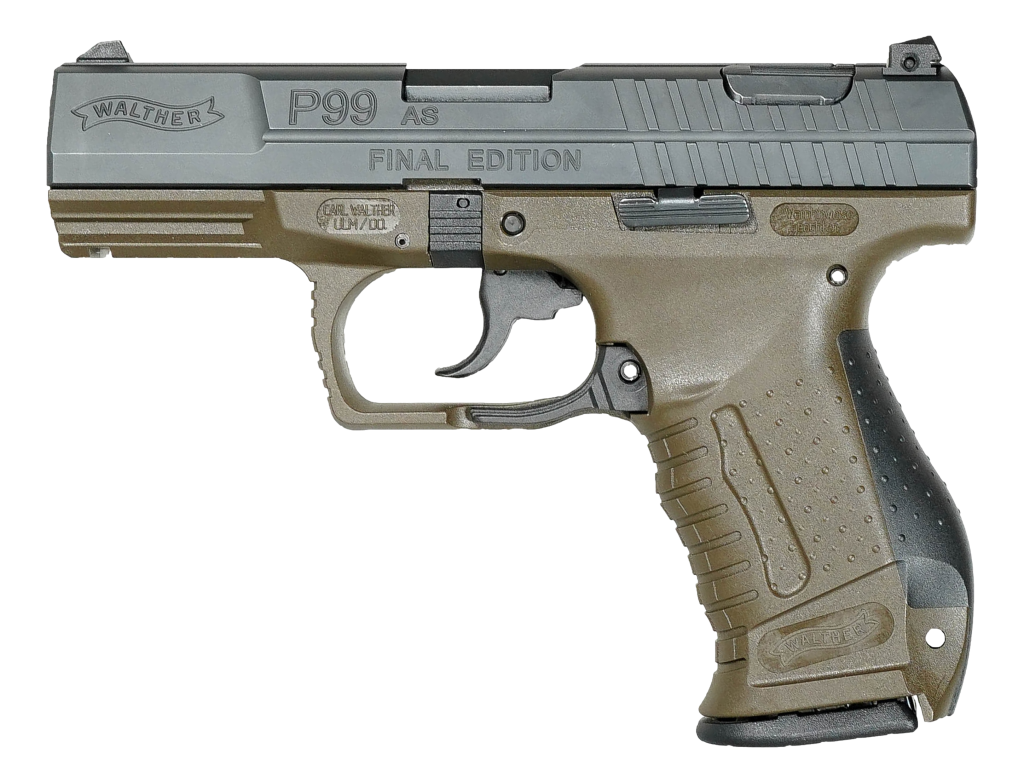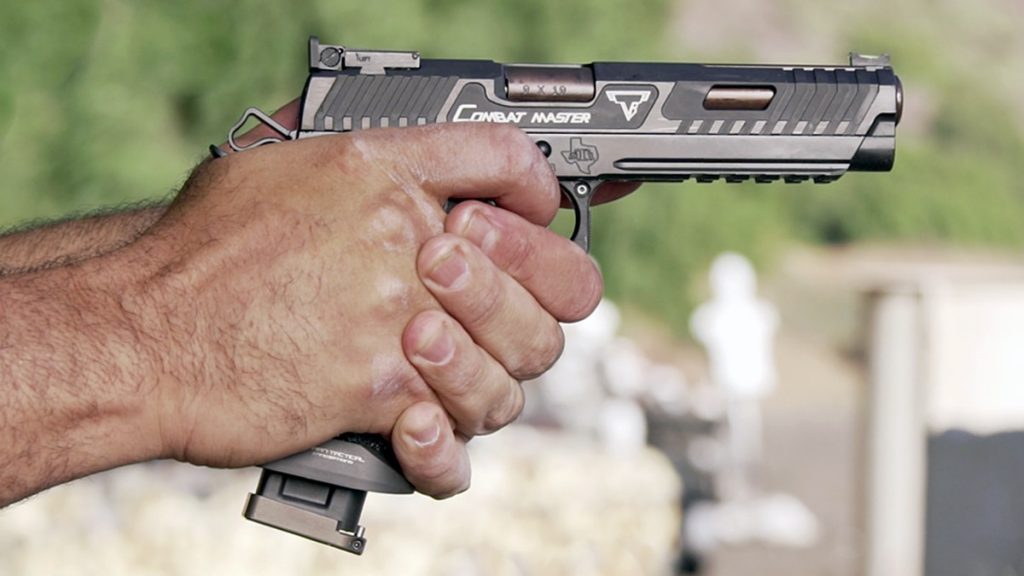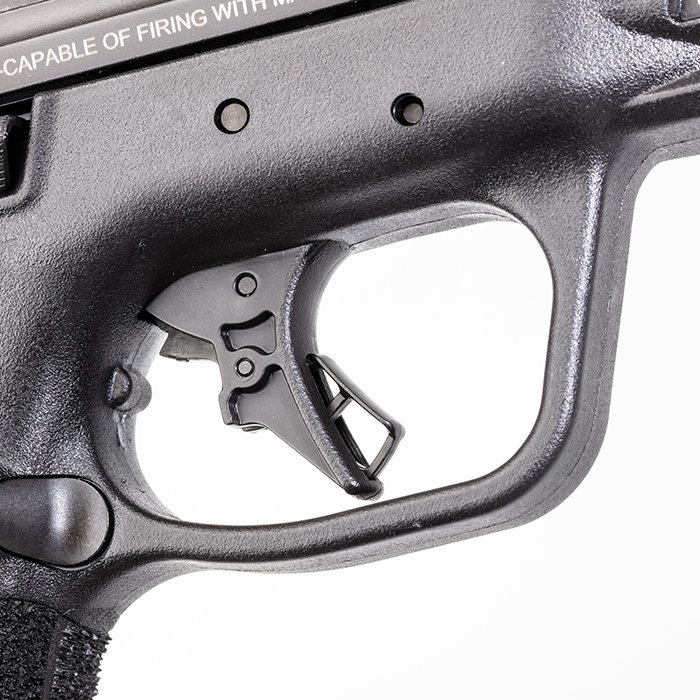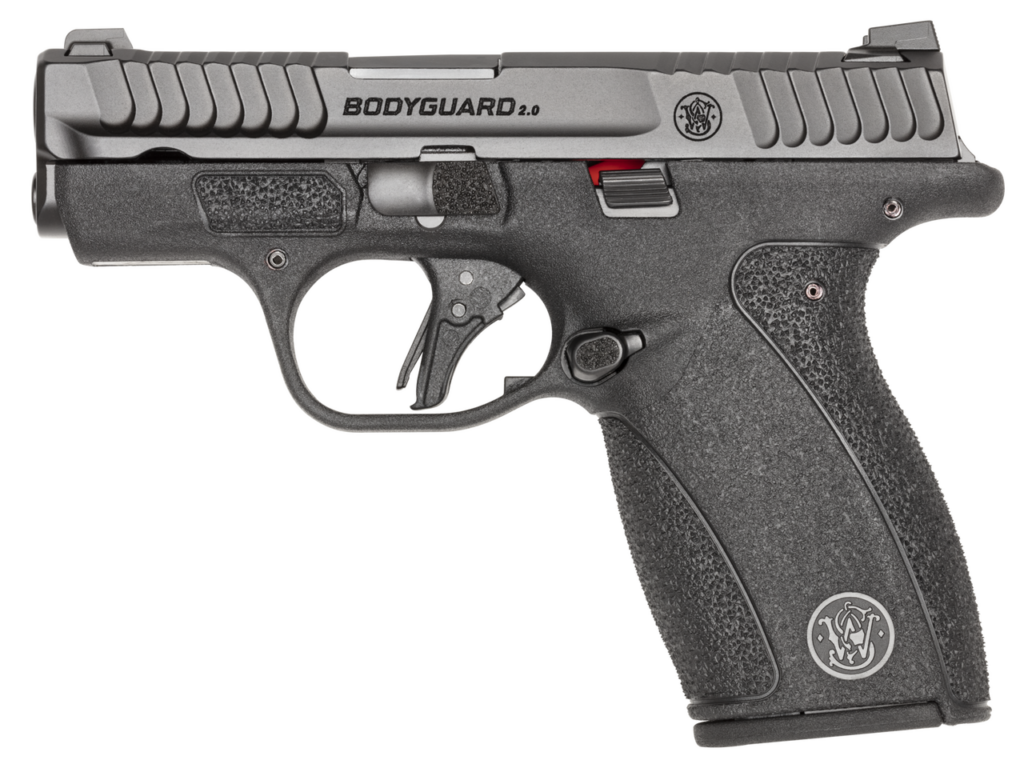Triggers are an interesting topic when it comes to firearms. There used to be a time when triggers were everything, especially handgun triggers. I intended to write an article about triggers, but it quickly became apparent that combining rifles, shotguns, and handguns would be long and complicated, so let’s just talk about handgun triggers.
I used to believe that I needed a good trigger to shoot straight. Triggers were an essential way to judge a gun. Then something happened. When I started shooting a lot more, I realized the trigger’s weight and length didn’t matter as much as I thought they did. Do handgun triggers make a big difference in accurately shooting a handgun?
Handgun Triggers – What Does Nice Mean?
What’s a nice trigger? Typically, people describe a nice trigger as one that’s smooth, light, and short. You want it to glide or feel like it’s moving on ball bearings. Theoretically, you’d want to apply as little effort as possible to get the trigger to break and the gun to fire.
It’s easy to see why people like nice triggers, outside of their personal performance. It’s a tactile delight. I love manipulating a lever action, and for the same reason, I like a good trigger. Good triggers are just fun to manipulate.

People like things that feel nice. Dry-firing a PDP feels great because the trigger rocks. Does the trigger of your handgun make a difference in your accuracy?
Yes (Kind Of)
If you’re new to shooting or not very experienced with a handgun, a good trigger can make a difference. The reason it makes a difference is because you’re new to shooting and no offense, but you probably suck at shooting.
That’s okay. I suck at shooting too. It’s a journey, man; enjoy the ride. A good trigger helps new shooters because they haven’t mastered their grip. I wouldn’t go as far as to say I’ve mastered grip by any means, but I’ve progressed to the point where trigger pull doesn’t make a difference.

At least with two hands. A nice trigger helps me shoot with one hand because I really suck when I shoot with one hand. Good handgun triggers can be a crutch when your grip isn’t solid.
The Handgun Trigger Reality
Shooting accurately is really easy. You put your sights on the target, ensure they are aligned correctly, and pull the trigger without disturbing your sight picture. It’s easy…to explain, anyway. It’s not always so easy to do.
What keeps you from moving your sights when you pull the trigger isn’t the trigger; it’s your grip. A good grip on your gun means you can slap the hell out of the trigger, and it doesn’t matter. A long, heavy trigger won’t matter either. Just keep the grip tight and slap it, and you can shoot.

After I got a decent grip on how to grip my gun, I quickly realized I wasn’t paying any attention to the trigger. There’s a reason plenty of people can shoot a DAO revolver accurately. It really became apparent when I shot this Tara 9mm, a DAO 9mm striker-fired pistol with a God awful trigger.
I was shooting it just as accurately as I could with my PDP.
How a Bad Trigger Can Affect Accuracy
That’s not to say it’s impossible for bad handgun triggers to cause accuracy issues. If you have a trigger that’s so long and heavy that it forces you to shift your hand to pull it, you have a trigger that can affect your accuracy. This can occur, especially when guns get smaller.
My favorite example is the original S&W Bodyguard. It mixed a crappy long, and gritty trigger pull with a super short and thin grip. The weight of the trigger and the fact that you had hardly anything to hold onto make it hard to shoot accurately, and the trigger contributes to that.

By all measures, the new Bodyguard isn’t much bigger, but it’s much easier to shoot due to its striker-fired trigger. We have a tiny grip and not much to hold onto, but a better trigger.
The Reality of Your Handgun Trigger
Swapping from a stock Glock 19 trigger to the Uber Tactical Super Match trigger that retails for $250 isn’t going to make a big difference in your overall accuracy if you’ve mastered your grip. A lighter trigger can help reduce split times, but you must be a good shooter for it to matter. Most of us aren’t fast enough to notice slight differences in pull. (Of course, we all aim to be.)
Overall, I think the trigger in your gun doesn’t matter as much as the gun industry seems to think. A nice trigger is still nice to have, and companies should try to make excellent triggers, but you need to master your grip if you want to shoot straight.
Read the full article here













